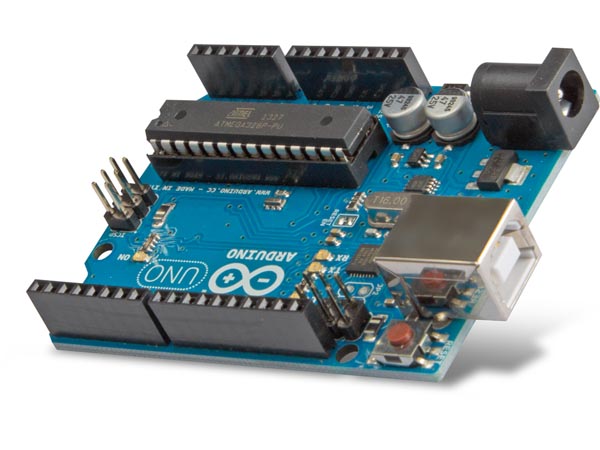
The Arduino Uno is a microcontroller board based on the ATmega328. It contains everything needed to support the microcontroller; simply connect it to a computer with a USB cable or power it with a AC-to-DC adapter or battery to get started.
The Uno differs from all preceding boards in that it does not use the FTDI USB-to-serial driver chip. Instead, it features the Atmega16U programmed as a USB-to-serial converter.
Features
- digital I/O pins: 14 (of which 6 provide PWM output)
- analogue input pins: 6
- contains: 16 MHz ceramic resonator, a USB connection, a power jack, an ICSP header, and a reset button
Specifications
- power supply: 6-20 V max. (adapter not included)
- microcontroller: ATmega328
- digital I/O pins: 14 (of which 6 provide PWM output)
- DC current per I/O pin: 40 mA
- DC current for 3.3 V pin: 50 mA
- analogue input pins: 6
- flash memory: 32 kB (ATmega328) of which 0.5 kB used by bootloader
- SRAM: 2 kB (ATmega328)
- EEPROM: 1 kB (ATmega328)
- clock speed: 16 MHz